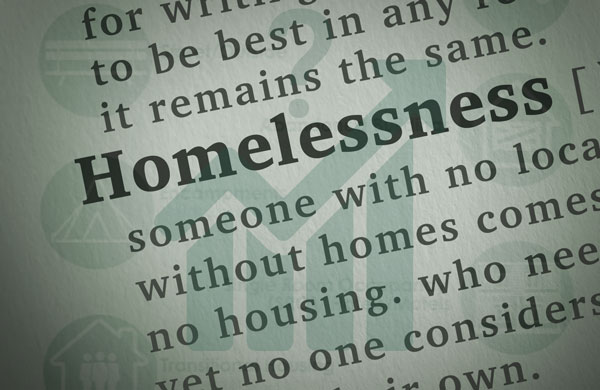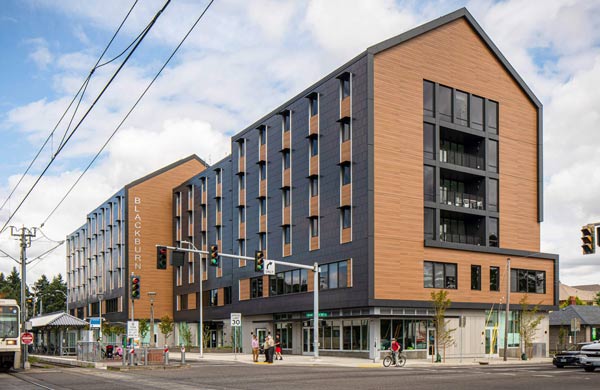HCH Funding: Introduction
In light of the Health Resources and Services Administration’s (HRSA) long anticipated release of the 2025 New Access Point (NAP) grant opportunity, this post will review the Health Center Program, HCH designation, and the National Health Care for the Homeless Council’s technical assistance offerings building off a previous HCH Helpdesk blog post and publication “So You Want to Start a Health Care for the Homeless Program.”
NAP funding opportunities open when Congress allocates funds to expand the Health Center Program. As a result, the NAP application does not open on a set schedule. To stay up to date on current funding opportunities check the Find BPHC grant funding page and sign up for the Primary Health Care Digest weekly email.
The 2025 NAP award estimated funding is $50 million, which will be allocated to an anticipated 77 awardees. The maximum award is $650,000 with up to $250,000 for equipment and minor alteration or renovation. NAP project budget allowable expenses include personnel, fringe benefits, travel, equipment, supplies, contracts and subawards, construction (minor alteration/renovation), and miscellaneous costs (i.e., provider licenses, staff recruitment, membership dues).
Health Center Program
The Health Center Program (HCP) has been a key part of the U.S. healthcare system for the past 60 years. Health centers help patients achieve better health as these local, community based, patient-led clinics exist to address medical, dental, and other health needs regardless of one’s ability to pay. An important characteristic of the Health Center Program is the emphasis on accessibility. HRSA partially funds health centers and monitors their operations to ensure accessible, culturally competent, and high-quality care.
- Federally Qualified Health Center (FQHC) status is obtained once a health center is certified under the Centers for Medicare and Medicaid (CMS) and provides the benefits of Medicare and Medicaid reimbursements.
- Health Center Program (HCP) award recipients are HRSA-supported health centers that receive grant funding from HRSA. The four grant program functions or activities are: Community Health Centers (CHC), Health Care for the Homeless (HCH), Migrant Health Centers (MHC), and Public Housing Primary Care (PHPC).
- Health Center Program (HCP) look-alikes (LALs) are HRSA-supported health centers that are compliant under the HCP and eligible for some benefits. LALs are not eligible for federal grant funding, FTCA coverage, or loan guarantees.
- The term health center refers to any health facility and could be an FQHC, HCP award recipient, or LAL.
HRSA-supported health centers are eligible for reimbursement at the FQHC rate, drug discounts under the 340B program, free vaccines for children, help hiring clinicians through the National Health Service Corp program, and training/ technical assistance. In addition to these benefits, HRSA-funded health centers are also eligible for grant funding, Federal Tort Claims Act (FTCA) coverage, and the Loan Guarantee Program.
Health centers that serve a special population can apply for grant funding through section 330 of the Public Service Act. The special populations are migratory and seasonal agricultural workers (330g), people experiencing homelessness (330h), and people living in public housing (330i). Section 330 designation and grant funding is obtained one of two ways: through the New Access Point (NAP) award or Service Area Competition (SAC).
New Access Point (NAP)
- The NAP Notice of Funding Opportunity (NOFO) opens infrequently and only when Congress approves funding to expand the HCP.
- The award includes a base grant up to $650,000 to support primary health services for medically underserved populations at a new access point.
- A NAP’s defined service area must be an eligible Medically Underserved Area (MUA)/ Population (MUP). MUAs/ MUPs are identified geographic areas and populations with a lack of access to primary health care services. Find shortage areas using the MUA Find tool.
- Use the NAP Compliance Crosswalk to identify the HCP requirements that must be addressed in the NAP application project narrative. Once a NAP is awarded, sites have up to 120 days to achieve full compliance under the HCP Compliance Manual.
Service Area Competition (SAC)
- Every three years, HCP award recipients have their service areas re-competed. At that time, existing HCP award recipients may re-apply through the SAC. Other organizations can also compete for that award. Use the Service Area Announcement Table (SAAT) to identify needed information about a service area (i.e., award amount, NOFO number).
- If a SAAT area does not list funding for a population (CHC, MHC, HCH, PHPC), funding for that population cannot be requested through the SAC.
- New or competing SAC applicants for service areas that include HCH and/or PHPC must attest that they will use the funding to supplement, not supplant, expenses covered by other resources (federal, state, local, private).
- Use the SAC/ SAC-AA Eligibility Summary to prepare for a new or renewal SAC.
While the National Health Care for the Homeless Council cannot write your NAP or SAC application, we can support health centers with many aspects of their HCP compliance. For example, we can support technical assistance requests related to administrative policies (i.e., patient transportation, sliding fee discount program), staffing and credentialing, needs assessments, consumer governance, program monitoring, and UDS reporting.
Health Care for the Homeless (HCH)
The Health Care for the Homeless (HCH) movement was born in December 1983 with 19 initial demonstration projects. These projects ambitiously sought to change the entire health care system to make it more responsive to the needs of the people, especially people who are poor, uninsured, and experiencing homelessness. It has not been without great effort, sacrifice, and toiling that we now observe an HCH movement that in many ways achieves the original, aspirational goal of building an equitable, high-quality health care system for all. Continuing and building upon this legacy means understanding the history of the HCH movement, documented in Health Care for the Homeless: a Vision of Health for All report.
Homelessness is much more than housing status. A person’s mental, physical, and spiritual health deteriorates when their living conditions are unsafe causing severe, chronic, or even life-threatening injuries and illnesses. As such, there are particular health care needs of people experiencing homelessness. The HCH Model of Care acknowledges this and is comprised of several elements:
- Patient-centered care
- Multi-disciplinary approach to care coordination
- Case management
- Co-located services
- Street medicine
- Mobile health
- Shelter health
- Trauma informed care
- Medical respite
- Harm reduction
- Consumer engagement
- Eliminating stigma
- Housing first
Executing the HCH Model of Care requires ample resources to cover all the unmet need. When applying for funding through various federal, state, local, and private entities it quickly becomes apparent that different funders have differing definitions of homelessness. For HRSA- funding purposes, homelessness is defined by section 330(h) of Public Health Service Act as those at risk of experiencing homelessness, currently experiencing homelessness, or those living in shelters or temporary housing. Check out these resources on understanding the types of homelessness, measuring homelessness, and verifying homelessness.
HCP compliance requirements are rigorous and there are specific compliance items for HCH designees. Health centers awarded 330(h) funding to serve people experiencing homelessness must provide substance use treatment and services. Service sites must be accessible to the patient population relative to the location where the patient population resides. HCHs must utilize a sliding fee discount program that does not turn away those without the ability to pay or the uninsured. HCHs must also have a board of directors that is comprised of at least 51% consumers. All 330 special populations grantees must abide by UDS reporting guidelines that ask for information about their population, sometimes in great detail. For example, shelter status at first encounter, a status that evolves and changes, must be reported by HCHs.
Training and Technical Assistance (T/TA)
The Council offers many free T/TA resources to current and aspiring HCH programs. If you are new to the HCH movement, take these recommended steps to learn the HCH fundamentals.
- Read the history of the HCH movement.
- Take the HCH 101 online course.
- Watch a webinar on the HCH Model of Care or Denver HCH’s Integrated Model of Care.
- Become a member and connect with HCH programs by joining a committee or network.
- Browse our website and take advantage of the extensive catalogue of resources on clinical care, consumer engagement, policy, and research.
- Need additional support? Send us your T/TA inquiries.
Additional Resources
Find current funding opportunities:
Request technical assistance from the Health Resources and Services Administration (HRSA) Bureau of Primary Health Care (BPHC):
View resources and request training and technical assistance from National Association of Community Health Centers (NACHC):
- So You Want to Start a Health Center (2019 NACHC Publication)
Connect with a Primary Care Association (PCA) or Health Center Controlled Network (HCCN):



